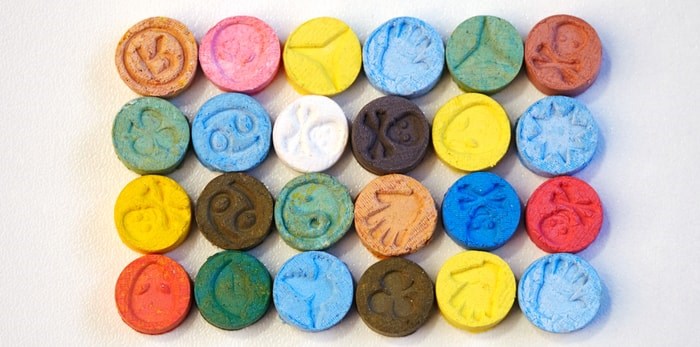Could a renowned party drug help treat post-traumatic stress disorder?
A new study conducted in part at UBC Okanagan indicates that MDMA, also known as ecstasy, could be a valuable treatment tool.
 Ecstasy pills/Shutterstock
Ecstasy pills/Shutterstock
The recently published international study demonstrates substantial improvements in people who had not responded to prior treatments. UBCO associate professor of psychology Zach Walsh says this is the most comprehensive evaluation of the safety and effectiveness of MDMA-assisted psychotherapy for PTSD.
“PTSD symptoms decreased after one session of MDMA together with psychotherapy,” says Walsh, study co-author. He adds that 54 per cent of participants no longer met PTSD criteria after two sessions and that there was also improvement in their symptoms of depression.
“These findings are promising and indicate the needed for larger studies,” says Walsh. “Too many people with PTSD struggle to find effective treatment, and use of MDMA in a supportive environment with trained mental health professionals could be an important addition to our treatment options.”
Walsh, as well as researchers from the United States, Switzerland and Israel, examined the results from six clinical trials, involving 103 people. Trial participants included men and women with chronic, treatment-resistant PTSD from a wide variety of causes.
Based on these results, the U.S. Food and Drug Administration granted breakthrough therapy designation to MDMA-assisted psychotherapy for PTSD, acknowledging that it “may demonstrate substantial improvement over existing therapies” and agreeing to expedite its development and review.
Ecstasy, also known as molly, is the nickname for MDMA, a synthetic drug made from a combination of methylenedioxy-methamphetamine. It is a controlled, illegal drug in Canada classified as a stimulant with hallucinogenic properties.



